In the Srimad Bhagavatam and the Caitanya-caritamrta, we find a verse glorifying the acharya or great spiritual master, describing his intimate relationship with the Supreme Person as His representative on earth:
One should know the acarya as Myself and never disrespect him in any way. One should not envy him, thinking him an ordinary man, for he is the representative of all the demigods.
[Srimad Bhagavatam 11:17:27. Also Caitanya-caritamrta Adi: 1:46]
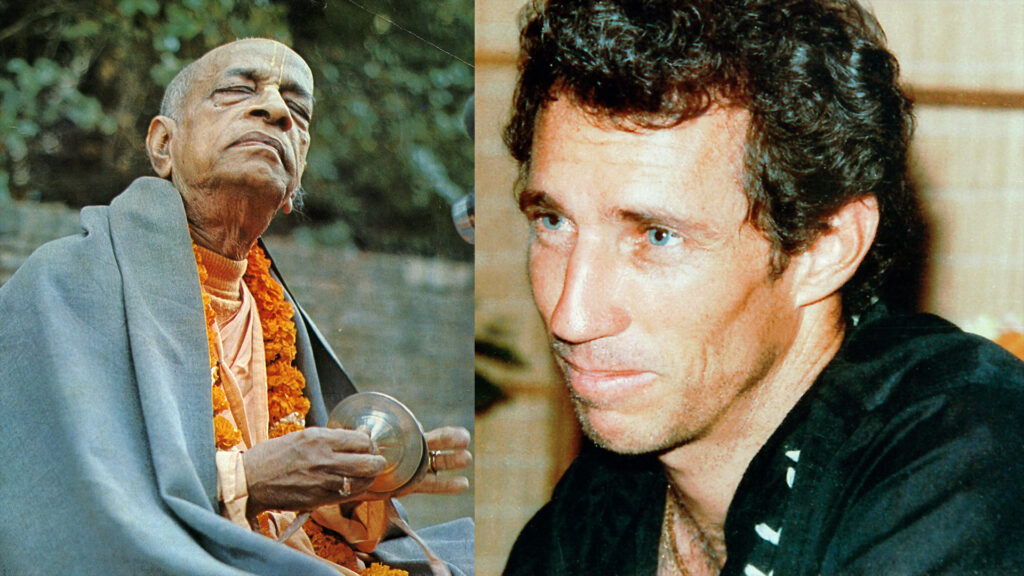
In the purport to this verse in the Adi Lila of the Caitanya-caritamrta, Srila Bhaktivedanta Swami describes the simultaneous oneness and yet difference of the pure lover of God and God Himself:
…a disciple should always respect the spiritual master as a manifestation of Sri Krishna, but at the same time one should always remember that a spiritual master is never authorised to imitate the transcendental pastimes of the Lord. False spiritual masters pose themselves as identical with Sri Krishna in every respect to exploit the sentiments of their disciples, but such impersonalists can only mislead their disciples, for their ultimate aim is to become one with the Lord. This is against the principles of the devotional cult.
The real Vedic philosophy is acintya-bhedabheda-tattva, which establishes everything to be simultaneously one with and different from the Personality of Godhead. Srila Raghunatha dasa Goswami confirms that this is the real position of a bona fide spiritual master and says that one should always think of the spiritual master in terms of his intimate relationship with Mukunda (Sri Krishna). Srila Jiva Goswami, in his Bhakti-sandarbha [213], has clearly defined that a pure devotee’s observation of the spiritual master and Lord Shiva as one with the Personality of Godhead exists in terms of their being very dear to the Lord, not identical with Him in all respects …
[From purport to C.c. Adi: 1:46].
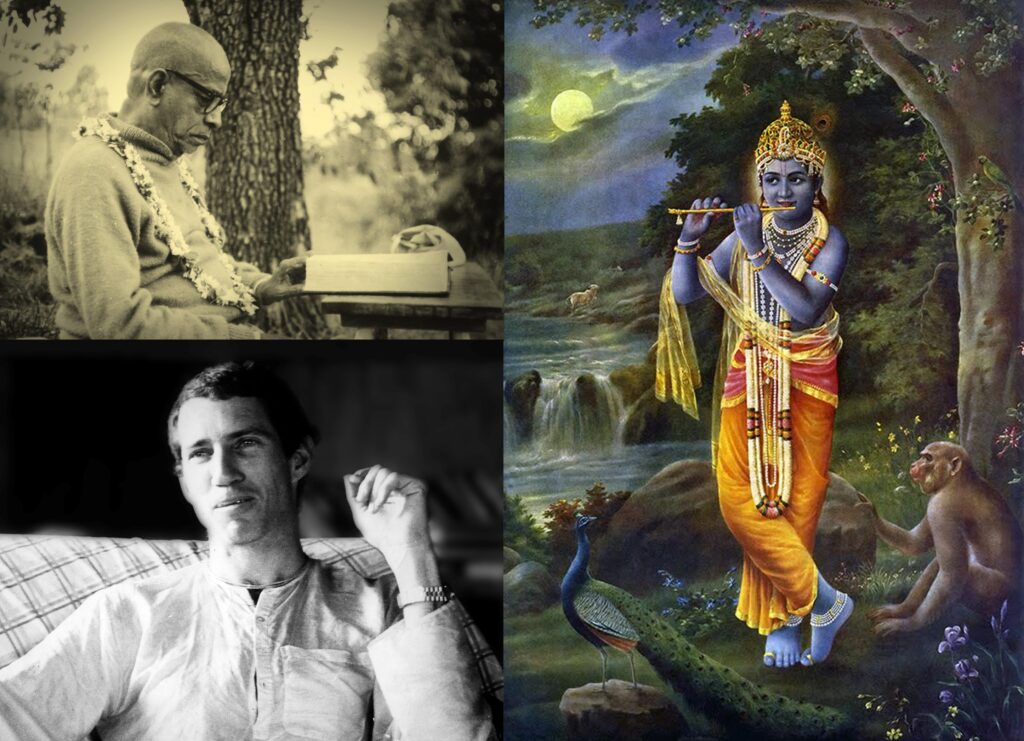
Misunderstanding this crucial point that the individual soul is similar to the Supreme Soul in quality but not quantity has led to much confusion amongst many Christian sects as to the actual position and identity of Lord Jesus Christ. And the same misunderstanding exists among many impersonalist or monist “yoga” societies. The analogy is given that a drop of sea water has the same qualities as the ocean – it is wet and salty – but the drop of water can never be equal to or become the ocean.
In the same way, the individual atma or jiva soul is spiritual in essence, and is eternal, full of knowledge and blissful by nature. These are all qualities she shares with the Supreme Soul. However, the Supreme Soul is infinite, while the jiva soul is infinitesimal. And this misunderstanding of the difference between the individual or jiva soul and the Supreme Soul is at the heart of impersonalist philosophy and is used by many impersonalist gurus to assert that they are God or that we are all God.
In John chapter 10:24-39 of the New Testament, we find the following exchange between Jesus and a crowd of Jewish people:
The Jews who were there gathered around him, saying, “How long will you keep us in suspense? If you are the Messiah [one sent by God to save the Jewish people] tell us plainly.” Jesus answered “I did tell you, but you do not believe. The works I do in my Father’s name testify about me, but you do not believe because you are not my sheep. My sheep listen to my voice; I know them, and they follow me. I give them eternal life, and they shall never perish; no one will snatch them out of my hand. My Father, who has given them to me, is greater than all; no one can snatch them out of my Father’s hand. I and the Father are one.”
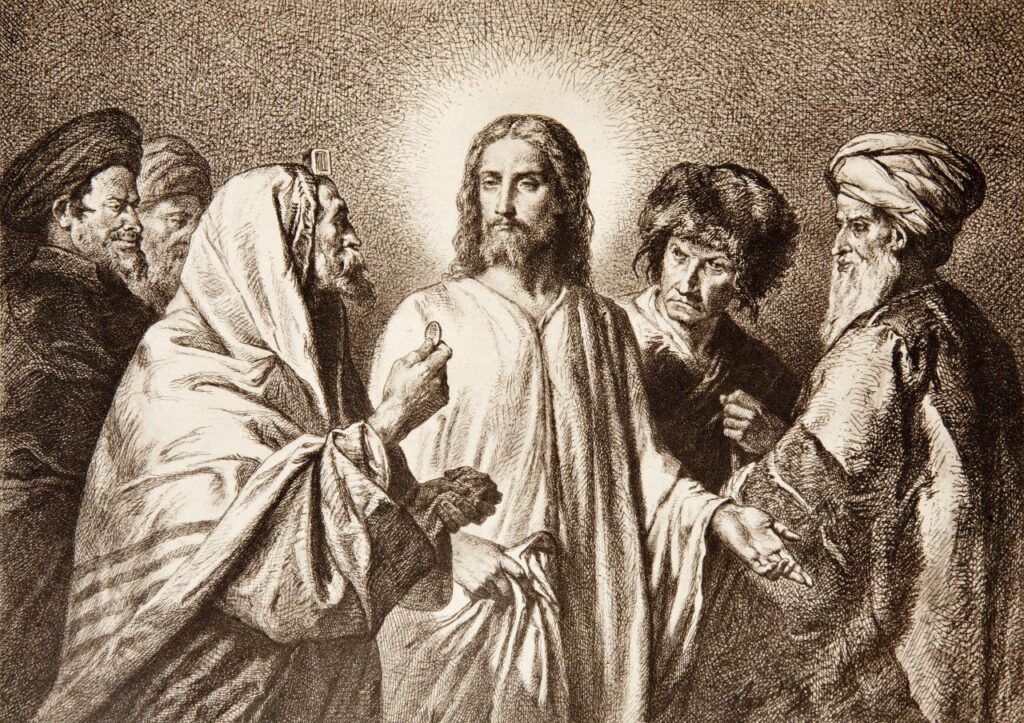
In saying “I and the Father are one,” is Jesus actually meaning that he is the Father, that he is God. This is a claim made by many people in regard to this verse. It is also asserted by some impersonalist philosophers, who claim that Jesus was teaching that we are all God. But what Jesus is meaning here is that as the son or representative of God, to surrender to Jesus is not different to surrendering to God or being in God’s hands. Jesus actually says “no one will snatch them out of my hand. My Father who has given them to me, is greater than all; no one can snatch them out of my Father’s hand.” So Jesus is talking about his Father “who is greater than all” who has given him certain sheep, certain souls to take care of, just as a shepherd takes care of his flock. It is very clear that Jesus is referring to someone else who has given him the responsibility of caring for those souls.
This is reminiscent of some very beautiful words written by Srila Bhaktisiddhanta Sarasvati, the spiritual master of Srila Bhaktivedanta Swami, in the early 1900’s, describing the role of the spiritual master in delivering those souls whom God has placed in his care:
The Reservoir of Grace whom the Supreme Lord, the personification of the Supreme Good, has made responsible for looking after my welfare, is my guru.
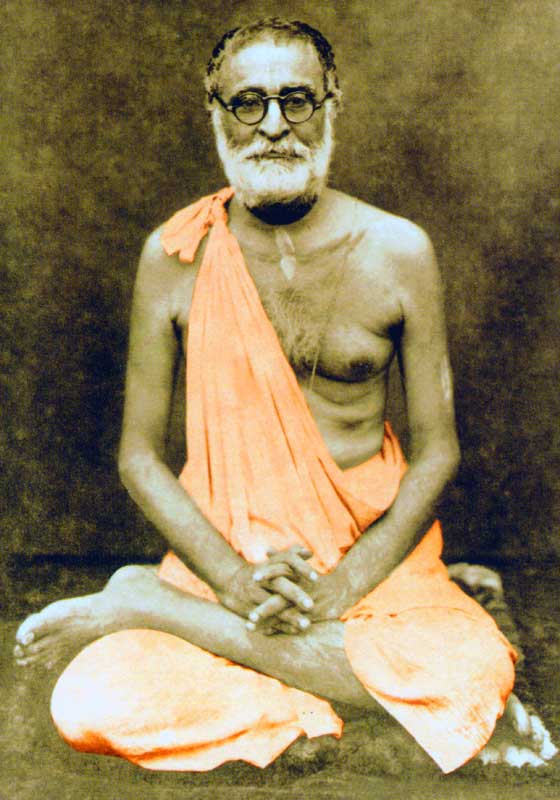
So it is very clear that Jesus was following the command and doing the will of someone else, someone who he describes as being greater than himself. Elsewhere in John, Jesus has stated:
I have not come to do my will, but the will of the one who sent me. … The One who sent me is with me; he has not left me alone, for I always do what pleases Him.
[John 6:38; John 8:29]
Jesus called the Father “my God” both before and after his crucifixion. [Matt. 27:46; John 20:17]. Jesus did not think of himself as God or as God’s equal, but rather he said, “My Father is greater than I.” [John 14:28]. But still many people say that Jesus is God. Some speak of the “Holy Trinity: God the Father, God the Son and God the Holy Ghost.” But the word “trinity” is not found in the Bible. Jesus is called the “son of God” more than 50 times in the New Testament, but nowhere is he called “God the Son.” By equating Jesus with the Father in all respects, they are unable to follow Jesus’ first and foremost command – to love the Father:
“Teacher, which is the greatest commandment in the Law?” Jesus replied: ‘Love the Lord your God with all your heart and with all your soul and with all your mind.’ This is the first and greatest commandment.
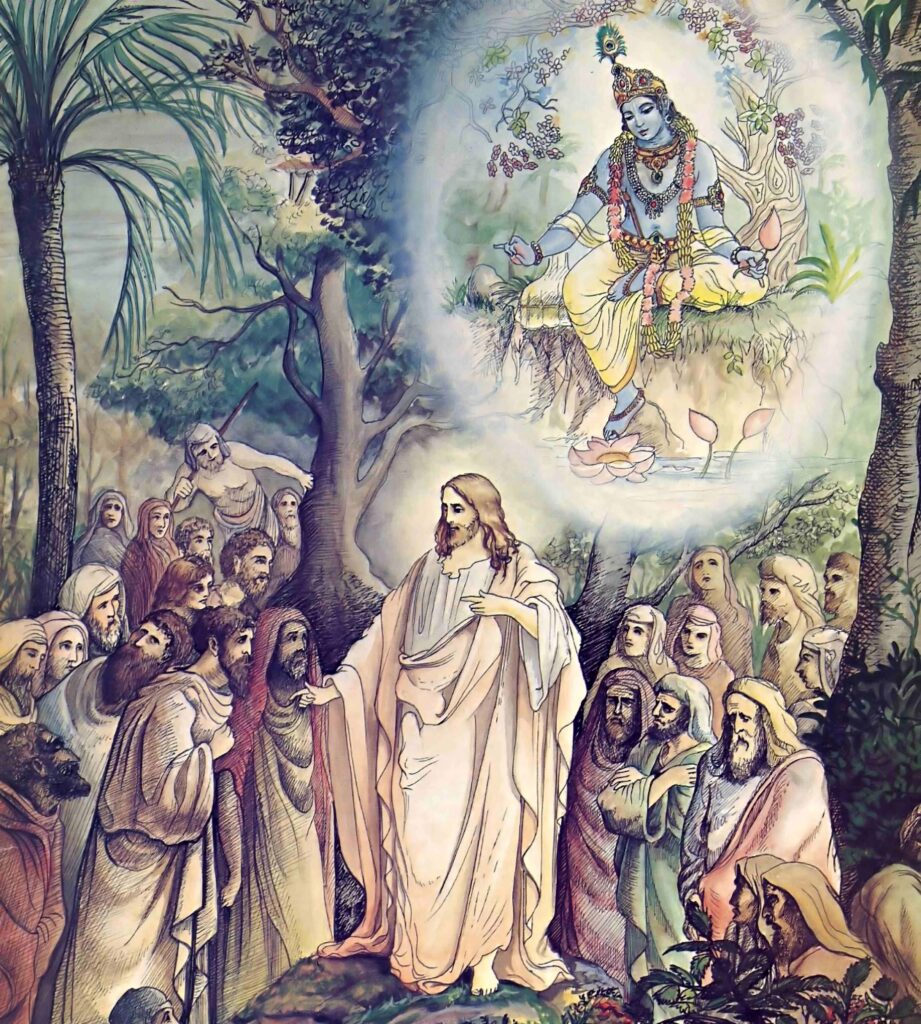
To ignore his most important instruction is not at all pleasing to Jesus – no devotee wants to be called God or worshipped as God. But it is proper and wonderful to worship a great devotee as the loving servant of the Lord. Jesus did not claim to be or seek to be worshipped as the Supreme Being.
When Jesus says, “I and the Father are one,” he is talking of the union or yoga of two souls who are united in love and united in will. For there to be love there must be two – love is an exchange of devotion between two persons, two individuals who care for each other and desire to please each other. They have a common will. This is what Lord Chaitanya described as being “simultaneously one and yet different.”
We sometimes hear the term blessed union used to describe the marriage of two people who are hopefully in love. For this “blessed union” to work out smoothly there must be a common will, common goals and common purpose for living. Otherwise the union may not last or will not be a peaceful union. There will be conflict. Perhaps for a period of time one person will lay aside their own will or yield to the will of their partner to please the other person, but this will eventually lead to frustration and resentment. But if two people have the same will, the same purpose for living, then there will be harmony.
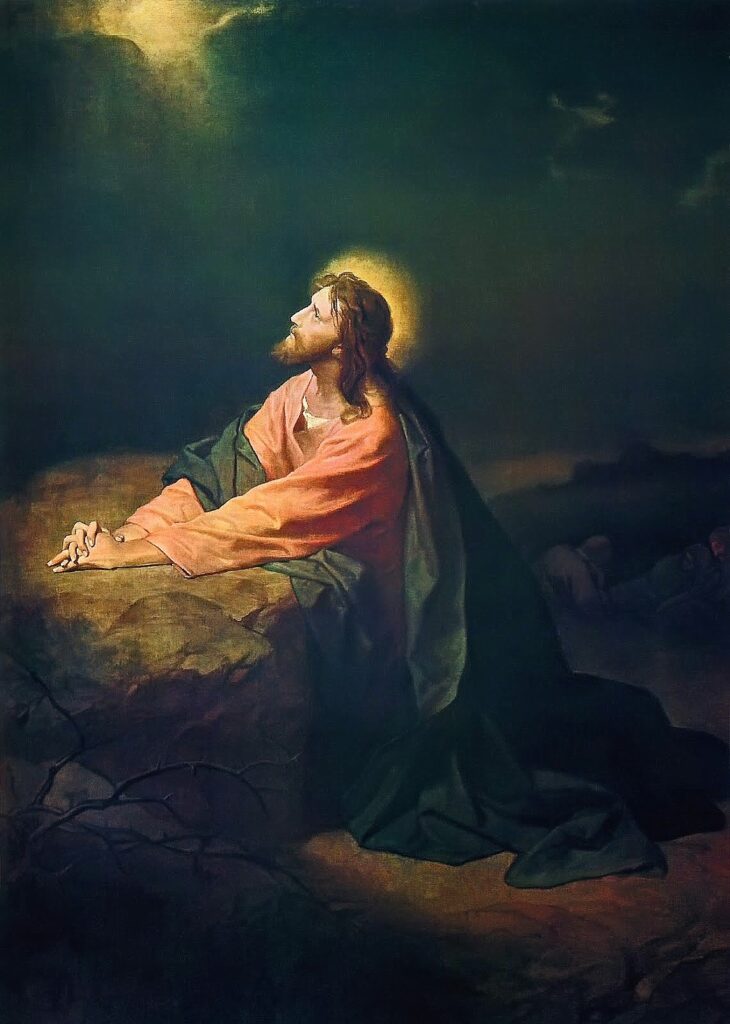
Jesus prayed to the Father, “Thy will be done on earth as it is in heaven.” As a completely surrendered devotee, Jesus had no separate will of his own – his will was completely dovetailed with the will of God. His only desire was to please God. So the oneness spoken of by Jesus was the oneness of two who are united in love. Otherwise why say “I and the Father?” Why not say “I am the Father?” If that was what he meant, that would have been much clearer. But that was never meant. After Jesus said “I and the Father are one,” some of the Jews, who were envious and threatened by Jesus’ influence on his followers, tried to say that he was being blasphemous and claiming to be God. Once again, Jesus made it clear that he was the son of God and was doing the work and the will of his Father:
Again his Jewish opponents picked up stones to stone him, but Jesus said to them, “I have shown you many good works from the Father. For which of these do you stone me?” “We are not stoning you for any good work,” they replied, “but for blasphemy, because you, a mere man, claim to be God.” Jesus answered them, “Is it not written in your Law, ‘I have said you are “gods?’”
[I said, “You are gods” – you are all sons of the Most High.Psalms 82:6]
If he called them ‘gods,’ to whom the word of God came—and Scripture cannot be set aside—what about the one whom the Father set apart as his very own and sent into the world? Why then do you accuse me of blasphemy because I said, ‘I am God’s Son’? Do not believe me unless I do the works of my Father. But if I do them, even though you do not believe me, believe the works, that you may know and understand that the Father is in me, and I in the Father.” Again they tried to seize him, but he escaped their grasp.
[John 10: 31-39]
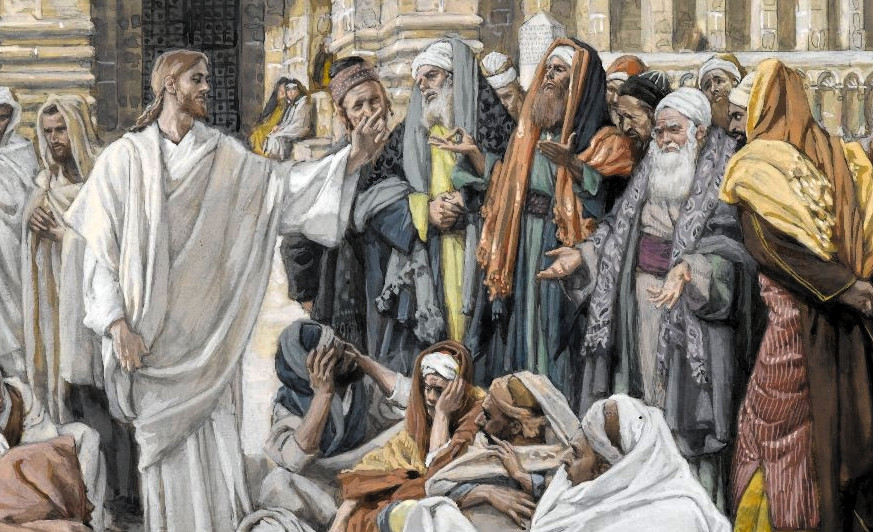
This expression of Lord Jesus Christ: … “the Father is in me, and I in the Father” is identical in meaning to these verses found in the Caitanya-caritamrta:
A pure devotee constantly engaged in the loving service of the Lord is identical with the Lord, who is always seated in his heart. Saints are My heart, and only I am their hearts. They do not know anyone but Me, and therefore I do not recognize anyone besides them as Mine.
[Caitanya-caritamrta Adi 1:61-62]
The simultaneous oneness and difference of Krishna and His fully surrendered devotee is described very nicely in the fifth canto of Srimad Bhagavatam:
Lord Brahma … is devoted to the Supreme Personality of Godhead without deviation, and therefore in one sense he is not different from the Lord. Nevertheless, he should be worshiped not as the monists worship him, but in duality. One should always remain a servitor of the Supreme Lord, the supreme worshipable Deity. We therefore offer our respectful obeisances unto Lord Brahma, the form of manifest Vedic knowledge.
[Srimad Bhagavatam 5:20:33]
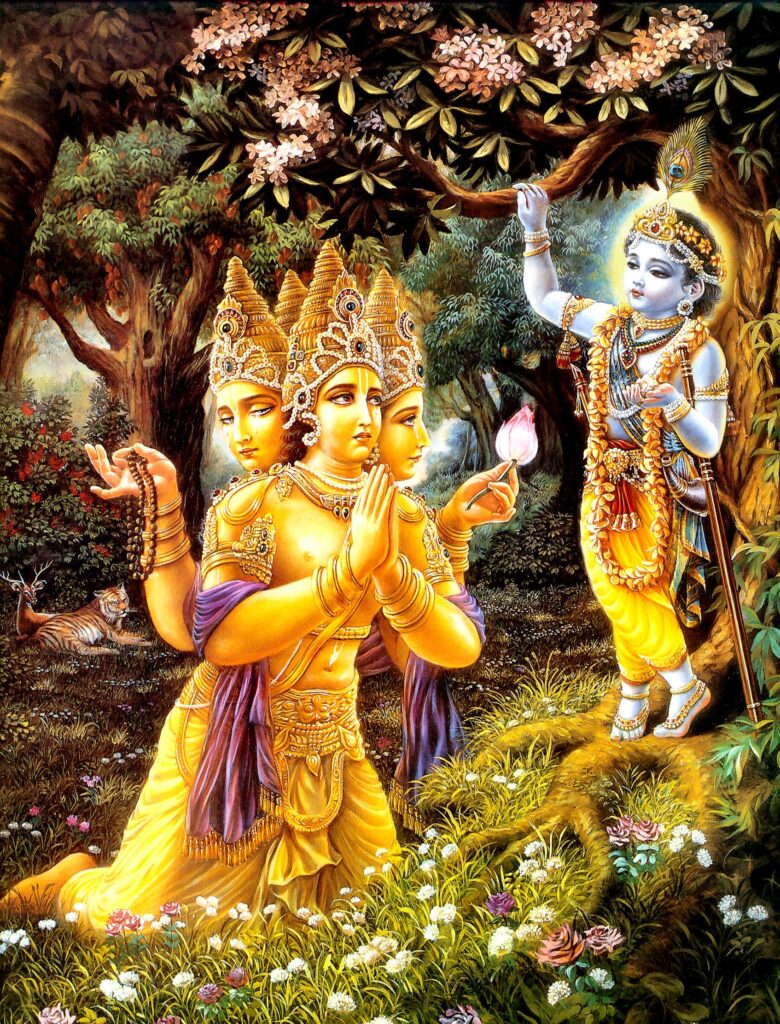
The goal of spiritual life is to surrender to the Supreme Person. This surrendering process is not the type of surrender that takes place when someone is staring down the barrel of a gun with his hands in the air. This is a different type of surrender. It is voluntary, done out of wisdom, and based on love. It is an expression of the oneness in love of the individual soul who is in union with the Supreme Soul. Such a soul, who is one with God in love, is described by Krishna as being a mahatma or “great soul.” This is bhakti yoga – union with God through loving surrender. It is described by the Supreme Soul, Lord Krishna, in many places throughout the Bhagavad-gita:
And of all yogis, he who always abides (lives or dwells) in Me with great faith, worshiping Me in transcendental loving service, is most intimately united with Me in yoga, and is the highest of all.
[Bhagavad-gita 6:47]
… the wise one who is in full knowledge in union with Me through pure devotional service is the best. For I am very dear to him, and he is dear to Me. … he who is situated in knowledge of Me I consider verily to dwell in Me. Being engaged in My transcendental service, he attains Me. After many births and deaths, he who is actually in knowledge surrenders unto Me, knowing Me to be the cause of all causes and all that is. Such a great soul [mahatma] is very rare.
[Bhagavad-gita 7:17-19]
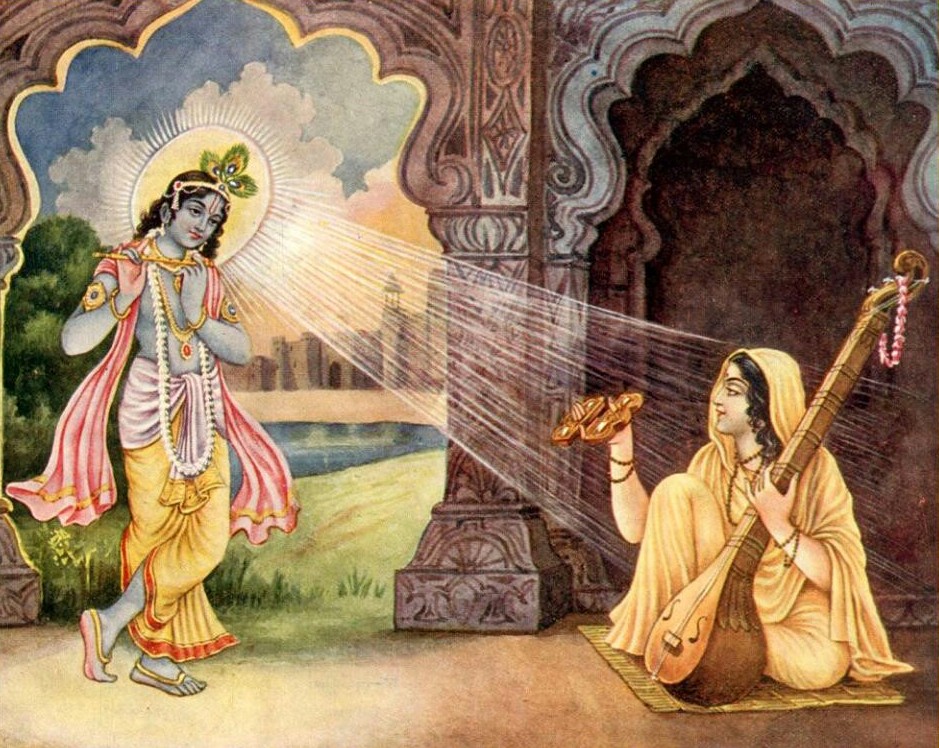
How does one attain this oneness in love – how do we come to the point of being able to truly love the Supreme Lord?
Just prior to his crucifixion, Jesus prayed to his Father, asking Him to protect his disciples. Although this practice has become lost over time among the followers of Lord Jesus, it is very clear here that Jesus practiced kirtan with his followers and taught them to take shelter of the Lord’s holy names. He stated that it was the name that protected them, kept them safe and gave them oneness with God. So kirtan was obviously most important to Jesus and his original followers, but with time this process was lost:
I will remain in the world no longer, but they are still in the world, and I am coming to You. Holy Father, protect them by the power of Your name – the name You gave me – so that they may be one as we are one. While I was with them, I protected them and kept them safe by that name you gave me.
[John 17:11-12]
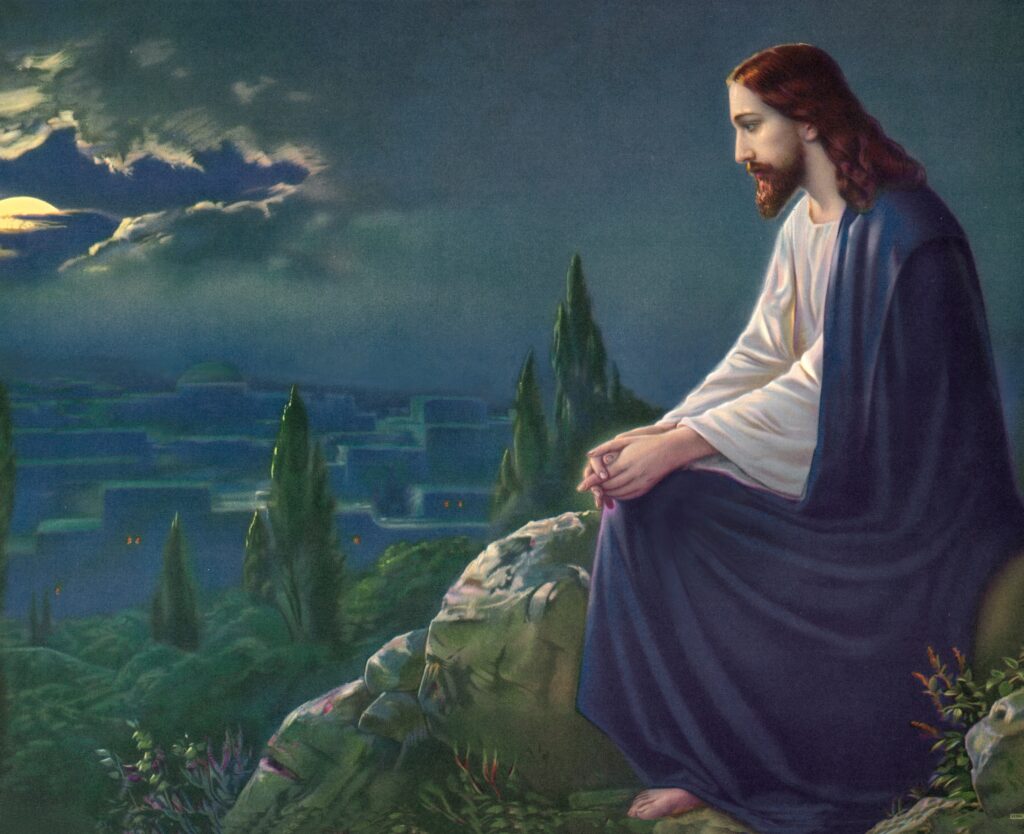
Both the one who makes men holy and those who are made holy are of the same family. So Jesus is not afraid to call them brothers. He says: I will declare Your name to my brothers. In the presence of the congregation I will sing Your praises.
[Hebrews 2:11-12]
Because the Lord is all-pure, His holy names have complete power to purify our hearts, and will gradually bring us to the point of perfect love for the Supreme. Krishna says to Arjuna in the Adi Purana:
Anyone who is engaged in chanting My transcendental name must be considered to be always associating with Me. And I may tell you frankly that for such a devotee I become easily purchased.
[Adi Purana]
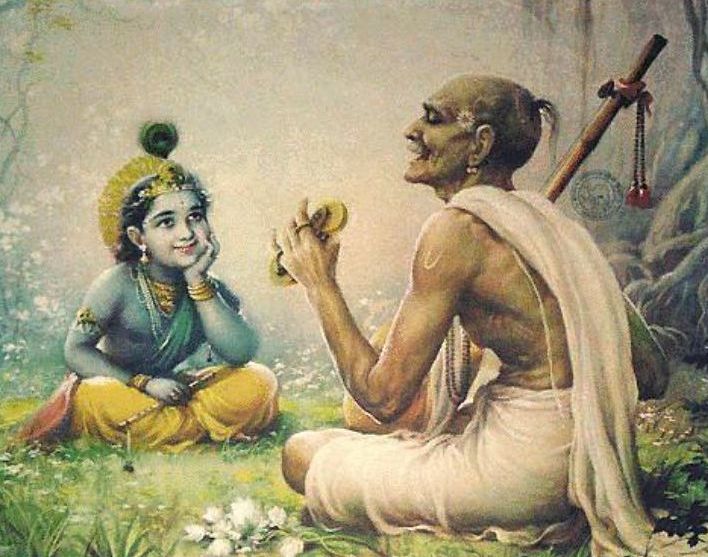
And in the Padma Purana it is said:
The holy name of Krishna is transcendentally blissful. It bestows all spiritual benedictions, for it is Krishna Himself, the reservoir of all pleasure. Krishna’s name is complete, and it is the form of all transcendental mellows. It is not a material name under any condition, and it is no less powerful than Krishna Himself. Since Krishna’s name is not contaminated by the material qualities, there is no question of its being involved with maya. Krishna’s name is always liberated and spiritual; it is never conditioned by the laws of material nature. This is because the name of Krishna and Krishna Himself are identical.
[Padma Purana]
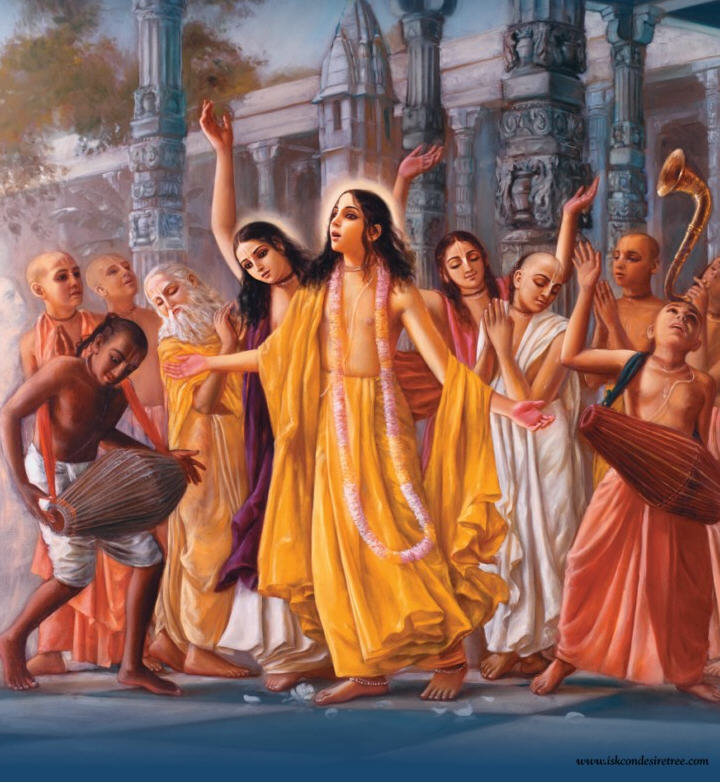


Comment
Hare Krishna,
Much apreciated post!